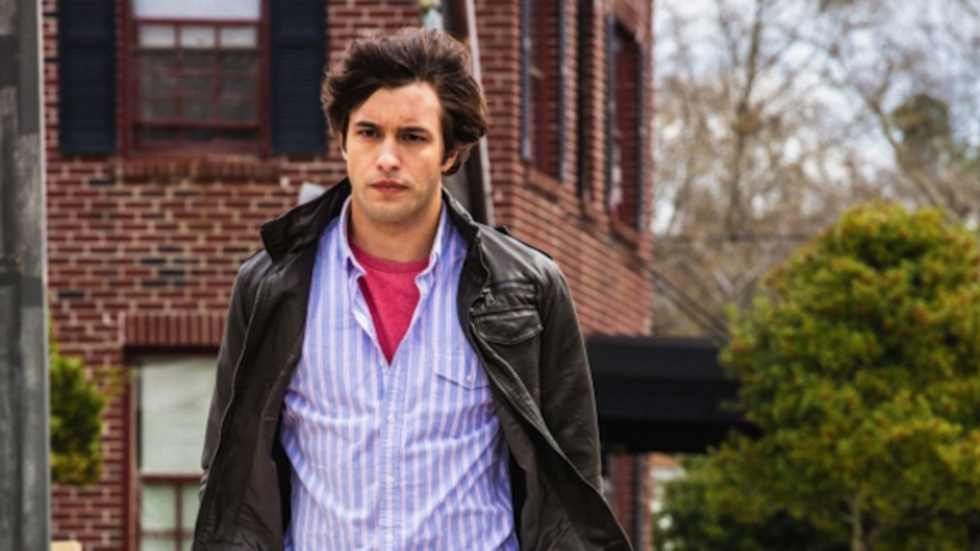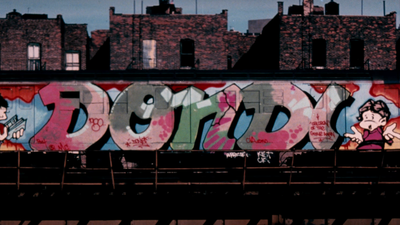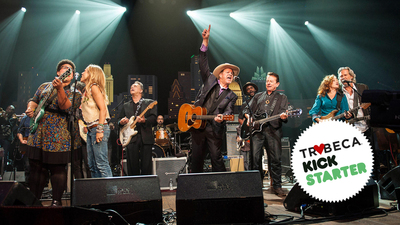
BY MARK BLANKENSHIP |
Screen Habits: 'Under the Dome' Actor Alexander Koch
We talk to the star of the summer TV hit about how music influenced the creation of Junior, a character who slowly descends into madness after being enclosed in an invisible bubble.

Alexander Koch is currently setting the standard for crazy people on network TV. A star of CBS's summer miniseries Under the Dome, based on Stephen King's novel about a small town that gets sealed off by a giant bubble, Koch plays Junior Rennie, a kid who snaps when the chaos begins. After just two episodes, he's kidnapped his girlfriend Angie (Britt Robertson), chained her up in a bomb shelter, and tried to kill a guy that he thought wanted Angie for himself.
So how does Koch (pronounced "coke"), who attended the Theatre School at DePaul University, prepare himself to play a crazy person? I wondered if his process involved the media, so I called last week to discuss his screen habits. Turns out, there's a lot of Roy Orbison involved.
Tribeca: First things first: Does the media impact your work as an actor? Do you listen to music to get psyched up? Do you watch a sad old movie to learn how to play a tragic scene?
Alexander Koch: When I'm working, I like to work with a lot of music. The more I can think of what a character would listen to, the more I feel like I have a place to create from.
Tribeca: Did you do that with Junior? Definitely. To me, Stephen King's work has this 1950's, Eisenhower-era feeling. That classic, American nuclear family thing. So I was listening to a lot of Roy Orbison. I had this Roy Orbison record I was listening to over and over.
Tribeca: Do you remember the particular song?
AK: Let me look it up. I have a whole Under the Dome playlist that has like a hundred songs.
[searches his computer]
It was a best of Roy Orbison record, and I started listening to these songs about heartbreak. These old-fashioned songs you'd hear on an old radio or something. I was rehearsing and thinking of things about Junior that seemed like they were on that record.
Tribeca: Like what?
AK: A lot of it comes from that ideal of what love is supposed to be. I was trying to develop a character relationship between Britt's character, Angie, and Junior. I get the feeling that in Junior's mind, there's a running loop of 50s love songs, and he's looking at her singing, I don't know, "I Only Have Eyes for You" by the Flamingos.
Tribeca: Interesting! So you're using songs to give you insights into his character and not just to get you into an emotional space.
AK: Right!

Tribeca: And if I'm getting you, these vintage love songs tell you how Junior wants to see the world, even though he's got his girlfriend chained up underground.
AK: When he's with Angie, he has this very distinct ideal of what it's supposed to be. Even when she's acting out, he knows it's going to be all rainbows and butterflies somehow. She's misbehaving right now, but she's gonna come around, and we're meant to be together. We're gonna have kids and run away together.
Tribeca: What else is on your Under the Dome playlist? Anything contemporary?
AK: There's an Alt-J song called "Breezeblocks." I like the chorus of it: "Please don't go, please don't go. I love you so, I love you so." That makes sense for this character.
[Note: The video is also a primer on how to terrorize a loved one.]
Tribeca: How do you listen to music? Are you using a vintage stereo for Roy Orbison?
AK: I have a record player at home that I usually listen to, but since I've been in Wilmington [North Carolina, where the series is filming], I couldn't bring it with me. When I'm on set, I'm listening through headphones on my computer, just trying to zone in and focus. Britt always makes fun of me about how I'm always in my chair listening to music.
Tribeca: And what about movies or TV? Any inspirations there?
AK: It was great coming to Wilmington where Blue Velvet was shot because I'm obsessed with that movie. I really love Badlands because I love the stylized feel of it. It's sparse, but it's so rich. There's minimal dialogue, but the images strike a chord. You feel something. To me, Terrence Malick writes from a point where images take precedence over dialogue.

Tribeca: As an actor, can you use that imagistic approach?
AK: When I'm working, I find images and kind of attach to them. At school, when we were studying Shakespeare, we'd have to create these huge booklets of images attached to the dialogue. It just makes the dialogue so much stronger if you have a distinct image in your mind. Before we go, I'd love to know what else has excited you recently.
Tribeca: Anything you've seen or heard or read that stick with you?
AK: The book I started reading during my audition process for this show was John Fowles' The Collector, because there were a lot of parallels with that and the Angie/Junior situation. That book freaked me out a little bit, and it was great to have that in my mind before starting this thing.
Previously in Screen Habits: The Shondes on Buffy & Star Wars

